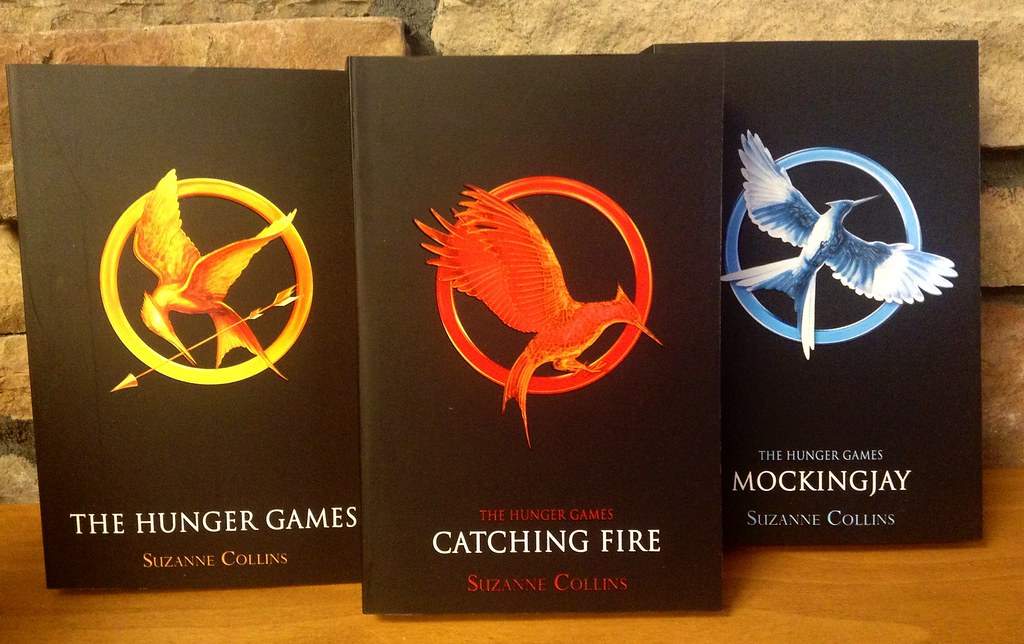The Hunger Games: an entirely endearing young adult series
What are Young Adult (or YA) novels? It is actually a harder question than you might think. For me, YA novels are novels which are marketed and written towards an audience in their mid to late teenage years. They may often deal with some mature themes (such as war, relationships, and life under oppressive regimes) while being easy enough to follow and understand. A typical way to achieve this often the use of fantasy elements to embody and allegorise real-world themes and issues. With this in mind, in this article I am going to discuss reasons behind the continuing impact of The Hunger Games trilogy by Suzanne Collins, and why it continues to be a beloved novel and franchise to date.
The Hunger Games (the first book was written in 2008) came out at a time when culture in general had begun to get more ‘gritty’ and ‘realistic’. In a post 9/11 world, culture across the spectrum had grown to reflect worries over democracy and freedom, while also addressing the growth of media and manipulation. The latter had been addressed, through the likes of Orwell, for example. However with the new internet age, media had grown and expanded far larger than in it was in Orwell’s time in 1948.
What follows is a story of maturity, relationships and rebellion, as well as reflexive moments of mortality in the face of certain death.
The Hunger Games focuses on 16 year old Katniss Everdeen, living in post-apocalyptic North America (now known as Panem), who volunteers to take her sister’s place in a gladiatorial combat event known as the Hunger Games. The Hunger Games (set up by the ruling Capitol district in the aftermath of a rebellion) take one boy and one girl between the ages of 11 to 18 from each of the 12 surviving underlying districts and put them in a Battle Royale-style fight-to-the-death until only one remains. What follows is a story of maturity, relationships and rebellion, as well as reflexive moments of mortality in the face of certain death.
It is the idea of a forced early-maturing, mixed with the feeling of an inevitable death in the build up to the games where Collins’ writing shines in this book.
The use of a adolescent protagonist and themes of oppression are areas that many teenagers (including me) could identify with. The notion of your independence being taken away and being forced into something you don’t want to do, are things which we (albeit in not as extreme a circumstance) are all familiar with. Personally, it is the idea of a forced early-maturing, mixed with the feeling of an inevitable death in the build up to the games where Collins’ writing shines in this book.
The world-building and tone of The Hunger Games has since been parodied by the likes of SNL and films such as The Starving Games alongside (admittedly more playful) criticism on how Panem would probably fail if it were real life. It is also clear that the book does not have the effect that more acclaimed dystopian novels such as 1984 (Orwell) have. However, that does not mean it doesn’t include many important themes for adults to consider as well as teenagers.
Perhaps The Hunger Games’ biggest theme is its focus on media manipulation
I’d argue that The Hunger Games includes themes which go over the heads of many young people but can resonate with a more mature audience. The teenagers being put into a situation where they are forced to kill or be killed while having to watch their friends die often to save their lives as well as its psychological impacts explored in the sequels, is not too dissimilar from real-life war stories.
Perhaps The Hunger Games’ biggest theme is its focus on media manipulation; how an event which encourages children to brutally murder one another is used as both a reality show and a political tool. The build-up of the children into celebrity stars, who the rich can bet on to ensure their favourites survival, says much about large wealth disparities and the creation of an ultra-upper class.
Many great video essays have explored this element of The Hunger Games, and while children may be scared at the violence and gore, there are still plenty of unsettling and intriguing themes and devices in the book which will keep adults intrigued with the franchise for many years to come.

Comments